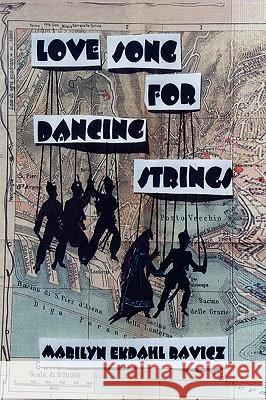Love Song for Dancing Strings » książka
Love Song for Dancing Strings
ISBN-13: 9781425761516 / Angielski / Twarda / 2007 / 244 str.
Long Book Description: Love Song for Dancing Strings (32542) "Forget the flute case. Get your butt behind me and run We've got to make it to the house, Gino." With that desperate plea, Sophia, a young and talented puppeteer, chides and hastens her youthful flautist-companion, Gino, to run for home and safety. They must escape the German landmines about to destroy the heart of Florence. It is August of 1944. The Germans are losing World War II, but angry at Italy's surrender and negotiated alliance with the Allies, their withdrawals from Italy become hot rakes of needless destruction, aided by fervent neo-Fascists propped up by Hitler-backed Mussolini. The withdrawing Wehrmacht destroys many villages and towns, loots artworks and continues to conscript workers, deport Jews and jail or murder defectors. The stage is set for tensions at every level: between German and Allied military forces; between partisans and liberals in Italy and Spain and neo-Fascists across Europe; between Communist/Socialist parties and conservative Roman Catholic support of Fascism in Italy and Spain; between starving Italian women and children and occupying armies; and between Jews who hide and struggle to survive and those who support the Nazi final solution. On the August night the departing German Wehrmacht activates its landmines and destroys many magnificent renaissance buildings and Arno River bridges in Florence, Sophia, a brilliant puppeteer whose family has for generations operated a famous marionette theater, and her flautist, Gino, a refugee youth she befriends, hide in her cellar. They survive the night of terrifying explosions, although the mines destroy much of the back wall of their house. Their home is damaged and unsafe, and Sophia - who has used marionettes as cover when acting as a courier for the partisans in a local cafe - must flee. Gino, a young and strong adolescent must leave with her in order to escape German labor camp conscriptions. The partial destruction of the back wall of Sophia's house reveals a hidden storeroom they think was once an old wine cellar. Searching for things to take with them or trade on the black market, they force open an old trunk and discover an ancient manuscript, some gold ducats, a few not-too-valuable gemstones and a roll of drawings Sophia thinks are backdrops for their stage. She reasons they were discarded with unused, exotic porcelain marionette parts and old scripts. Sophia and Gino realize they must survive alone and without family support. Sophia's father is a conscripted worker, and her brothers are soldiers in different armies: one in Italy, and an older brother, Achille, who disappeared from his International Brigade during the Spanish Civil War. Gino's parents died during bombing raids, and Sophia has promised to care for and protect him. Rather than hide and risk discovery or death, they decide to make their way to Barcelona to find Sophia's older brother. Their identification papers and ration cards are buried by debris, and they escape with a few articles of clothing, several marionettes, a folding traveling stage, and selected items from those discovered in the newly revealed storeroom: a mysterious, ancient manuscript they later learn is the memoir of a thirteenth century trading trip through the middle east to South China made before Marco Polo by a Jewish merchant from Ancona; gold ducats that prove basic to survival; and the roll of renaissance drawings that later prove to be valuable for the renovation of their lives. Much of the plot turns on the odd fact that the thirteenth century merchant who wrote the memoir-manuscript has the same family name as Sophia. Moreover, its cover page bears the signature of Sophia's father (among many others) and includes a written charge to care for the manuscript and related objects. They cannot leave it behind. Who was this merchant who bore the same family name? An ancestor? Or is the document merely an old marionette play us











